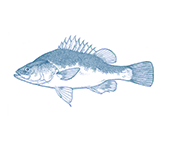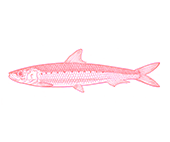




- Say No
Wild Caught
Region:
VIC
Note: Blacklip Abalone harvested between Warrnambool and the South Australian border are considered a green “Better Choice”, as their stocks are in a healthy condition.
- Abalone are hand-gathered by divers using hookah (air hose connected to compressor), snorkel and scuba.
- Victorian abalone populations are in a depleting or overfished condition because of areas of overfishing, environmental change and a disease outbreak that impacted the fishery in the mid 2000s.
- Managers are not adequately addressing the impacts caused by these disturbances.
- The fishing method is low impact and has no bycatch or discards.
- Victorian Central Zone Fishery, Victorian Eastern Zone Fishery and the Victorian Western Zone Fishery (643t in 2022/23)
Research into the stock status of abalone populations indicates that they are likely made up of many small, independent populations along the southern coast of Australia. Regional studies suggest that some areas have healthy populations, while other areas are depleted and overfished, resulting in a patchwork of stock status.
Many blacklip abalone stocks are declining because abalone are highly susceptible to a range of climate impacts like marine heatwaves, habitat loss and invasive species. These issues are likely to impact habitat in eastern areas, where loss of reef kelp forests is a concern for the rock lobster fishery. But climate impacts are not yet considered in fisheries management.
Abalone are hand-collected by divers. There is no bycatch, and minimal impacts on seafloor habitats from this fishing method.
Marine parks provide a small degree of additional protection for habitats and ecosystems throughout the fishery areas.





